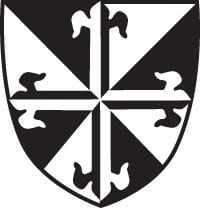The Last Word: Disputed Questions and a question of dispute
By Rev. R. Gabriel Pivarnik, O.P.
The medieval practice of disputed questions, or disputatio, was the equivalent of a jousting tournament of the mind — far less deadly and injury-ridden, but just as exciting and invigorating.
 In most universities, when a Master was disputing, all of the other lectures in the school were typically abrogated so that other scholars (called the bachelors) and specifically, the students of the Master, could attend. The Master would give a brief introductory lecture on the topic. And then, with no particular order to subject or query, the other Masters, the bachelors, and the students could begin to debate the issue.
In most universities, when a Master was disputing, all of the other lectures in the school were typically abrogated so that other scholars (called the bachelors) and specifically, the students of the Master, could attend. The Master would give a brief introductory lecture on the topic. And then, with no particular order to subject or query, the other Masters, the bachelors, and the students could begin to debate the issue.
The primary Master acted more as a respondent to the various questions asked. The entire morning would be a hodge-podge of point and counterpoint and would end when the last objection had been raised. It was only on the next day of the disputatio that the Master could make sense of all that had happened in the previous exercise. He would synthesize the basic objections to his thesis, present his own refutations to those objections, and then determine his final stance on the subject by drawing truth from the various fonts of the deliberative arguments.
It was in these final acts of determination that the Master would present, usually in writing, what we now call Disputed Questions.
In the Providence College classroom, we have taken this medieval mind-joust and flipped it into a question of dispute. For many in academia, there is a reluctance to enter into hearty engagement and challenge — that the classroom should be a place of comfort. But, we know that in our pursuit of truth, it is necessary, at times, to do more than just “agree to disagree.” We have to be willing to challenge our preconceptions and be open to the possibility that our singular vantage point may be wrong. At the same time, we have to be disposed to speak the truth in the face of adversity or confrontation.
Thus, in the PC classroom, it is not uncommon for a Dominican or lay professor to engage his or her students with a multitude of perspectives or opinions on a matter — and then, one by one, the class as a whole may “unpack” which theories work and which ones do not. We learn how to dispute with each other, not simply to argue, but to arrive at a greater truth than what we could possess on our own. We learn that in our Disputed Questions with each other we can find that ultimate Veritas that is beyond dispute.
Rev. R. Gabriel Pivarnik, O.P. is vice president for mission and ministry, director of the Center for Catholic and Dominican Studies, and an assistant professor of theology.





